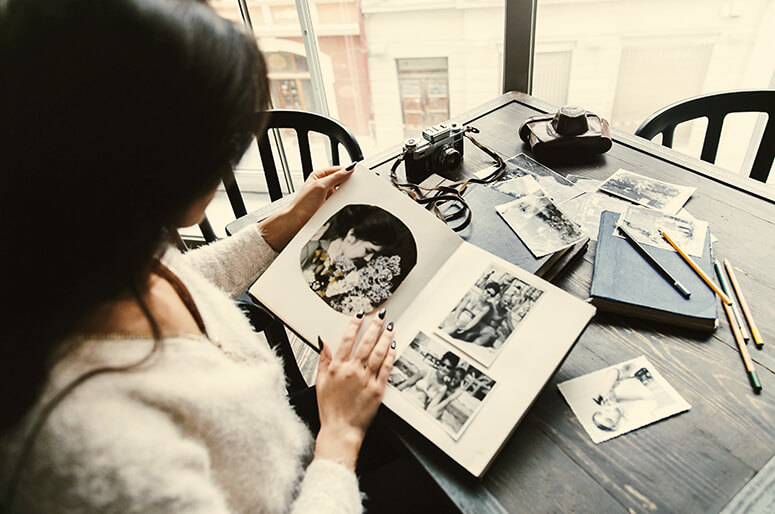A thousand births or a thousand funerals: Why every version of you matters
On extremely rare moments of quiet, I sit with myself and wonder how I got here. I look at my friends and think the same. Nothing has changed; we’re all still together making the same jokes and references from 10 years ago. But at the same time, everything has changed; our dreams are different and our perspectives have matured.
There’s a TikTok trend circulating of friends staring strangely at each other after realizing they’ve been present through all their life stages. I saw my best friends at 11 years old, playing tag in the classroom. I saw them at 15, all awkward limbs and pimpled faces. I saw them at 18, entering college with the false bravado of young adulthood. I’m seeing them now at 24, forging their own paths while exploring the world.
There’s no escaping change, and it can be scary or painful, but that is why we have to treat ourselves with as much grace as we can.
When we think of our past selves, our first instinct is to cringe. Why did I do my eyebrows like that? Why was I so into that guy? When will I realize I don’t need bangs? There’s a lot of relief when I see who I am right now. I’m far from who I want to be, but thank goodness I’m not where I was this time last year.
Some of my friends, though, think they’ve regressed and they are past their peak. They long for the people they were years ago.

While we all have our own personal circumstances—and I’m not here trying to police anyone’s feelings—I believe that both can be true; it is possible to both miss and reject the versions of us we left behind. In fact, this balance is important to have a healthy relationship with your past.
Missing who you were means you loved yourself at one point. You’re able to look back at yourself and the memories fondly. It’s always great to regard any aspect of yourself positively, even if these parts are no longer present in you.

But focusing too much on the grief can end up hurting you, too. Fixating on what once was can hinder you now. I always tell my friends who miss their old selves too much to give their current selves some credit.
You may think the you of the past was more carefree, maybe even happier. But it may be because you now know that you ended up okay. You know you made it and things became all right. The you of today could be just as anxious as your past self, unsure of what the future holds. Since there’s nothing you can do to change your previous self, it’s also easier to just accept it for what it is, which can lead you to miss it more.

Regretting your past also has its merits. Although cringe culture is arguably dead, it indicates that we’ve done some growing and evolving. So while regret usually has a negative ring to it, it can signal that you see your “faults” and that you are willingly avoiding doing the same thing.
At the same time, shame can eat you up if you let it. By failing to acknowledge your past because you’re too afraid of it, you might end up ignoring some great lessons or not allowing some amazing parts of you to carry on. Your “cringey” years are still you after all, and there’s a tiny bit of that old self that has trickled into the you of today, no matter how hard you try to get rid of it.

Musician Jamee Mae Kyson said, “To love someone is to attend a thousand births of who they are becoming,” while writer Heidi Priebe said, “To love someone (long-term) is to attend a thousand funerals of the people they used to be.” Both are true, and when turned inward, they are great reflections of what self-love should be. Maybe there’s no getting better and no getting worse. You’re just you—every form of you is you and has led to this point. The natural passage of time will push you along, and if you don’t want to drown you have to change. Stagnancy will keep you immobile, and eventually, you will be swallowed by the waves. Growing, moving, and evolving are all crucial and unavoidable parts of life. There’s no escaping change, and it can be scary or painful, but that is why we have to treat ourselves with as much grace as we can.
For all of the versions of myself, I will be kind. I will be kind to the 11-year-old girl playing tag in the classroom, and I will be kind to the 24-year-old woman writing this piece right now.


